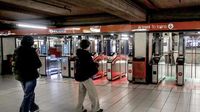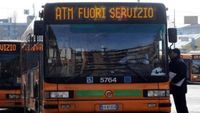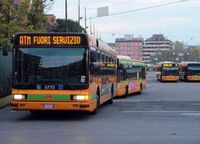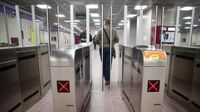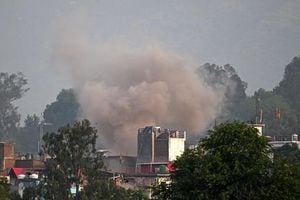On March 21, 2025, Milan experienced potential disruptions in its public transportation system due to a national strike called by several unions including Adl Cobas, Cobas Lavoro Privato, SGB, Cub Trasporti, and Al Cobas. However, in the morning hours, all five metro lines remained operational, and surface transport, including trams and buses, also continued to function without significant issues. With regular service noted until 8:45 AM, travelers were informed that disruptions might arise later in the day, particularly after the protective time frame ended at 6:00 PM.
The strike was part of a broader national protest linked to ongoing disputes over labor conditions and compensation in the transport sector. Workers were demanding a €300 pay increase and a reduction in the workweek from 39 to 35 hours for the same salary. This protest reflects widespread concerns among public transport employees regarding insufficient safety and health protections in their workplaces, as well as their broader dissatisfaction with the existing national collective labor agreement.
In a statement released by ATM, the transport agency serving Milan, the company confirmed that operations were running smoothly as expected amid the strike's initial hours. Reports indicated regular activity across metro lines M1, M2, M3, M4, and M5, with no interruptions reported as of mid-morning.
However, the situation was anticipated to become more complicated later in the day as the unions' appeal for greater working conditions garnered attention. Starting 8:45 AM, services would be limited for the duration of the strike, resuming once again for a brief period post-3 PM to 6 PM. After that time, the risk of service disruptions would rise significantly, requiring commuters to remain vigilant regarding their travel plans.
This nationwide strike was also a follow-up to a separate strike that just occurred two days earlier, impacting railway and air transport, which had involved other organizations like Trenord, Trenitalia, Tper, and Italo Ntv. This continuity of strikes across multiple sectors underlines a period of escalating tensions within the labor community, highlighting the urgency of the unions' demands.
Union representatives have articulated that this agitation is primarily fueled by a collective frustration towards government policies perceived as favoring privatization over adequate support for public workers. Many employees have expressed concerns that neglect towards their compensation and working conditions directly jeopardizes both their well-being and public safety for users of these services.
The unions have stated, "The current contract is filled with pittance and failed commitments. The signatory unions, companies, and government are complicit in this disaster for our sector." This statement underscores the significant dissatisfaction among transport workers regarding both government and corporate responsibilities towards their welfare.
As the day progressed, commuters were encouraged to stay updated through ATM's official channels. The situation remained fluid, with the potential for modified service or even further developments as the strike unfolded through the day. With the ongoing negotiations and demands continuing to be at the forefront of public discourse, the effects of these labor actions are likely to impact not only transport users but also local governance in the broader metropolitan context.
The travels of many in Milan were slated to be affected primarily after the labor unrest escalated with the end of the last guarantee time window, following which travelers should remain informed about changes to their expected transit schedules.
As authorities prepared for possible disruptions post-6 PM, the urgency and significance of the strikes served as a reminder of the ongoing challenges faced not just by public transport workers but across various sectors advocating for better conditions amid economic fluctuations.

